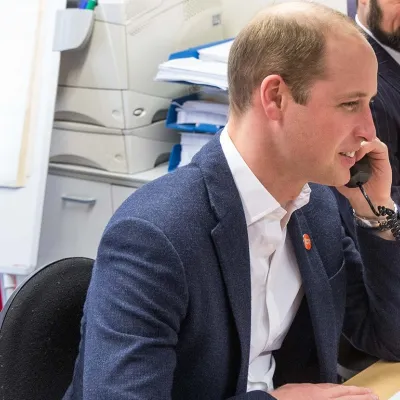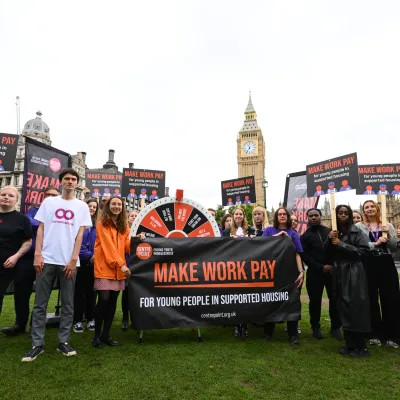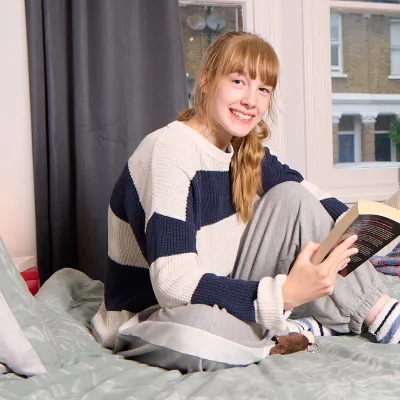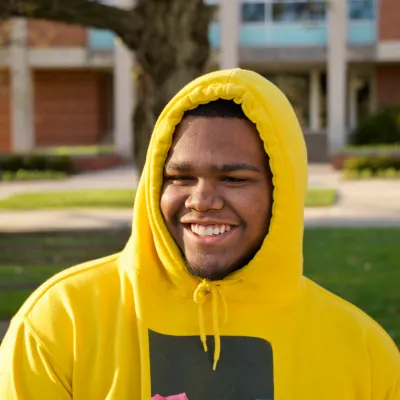Coronavirus now has the world in its grip: schools are closed, as are bars and restaurants, and the majority of people in non-essential roles are working from home.
The UK is currently on lockdown, meaning that we must stay within the comfort of our homes for the near future in order to the ‘flatten the curve’ and ease the strain on the NHS. This, however, isn’t something that comes easy for the young people who reside in our services, or for our key workers who care for them.
“In our service, we have eight flats with young people and their children,” says Michelle, Supported Housing Officer at our Lewis Cresent services. “It has been, and will continue to be for some time yet, a worrying and scary time for them all. In this last week especially, we have done everything to help and support them while not passing on any of our own worries and concerns.”
Because as a charity, and as people, we do have myriad concerns. This level of uncertainty leaves many of us fearful for both the near and distant future, and raises many questions that can’t be ignored: What will be the impact on people and on the economy in months to come? And what will happen tomorrow, when we’re unable to get the necessary supplies that we so desperately need?
The latter is a big worry for people like Michelle, particularly as young families occupy the housing services she works within: “One big worry for our young people is the shortage of essential items in the shops,” she says. “This is a challenge we are all facing, but when you have a child to consider it is more so. Baby formula, nappies, wipes – these are all essential for a baby.”
The spread of anxiety among residents is palpable. One young person in Michelle’s service expressed her fear for her child during this time: “There are no nappies or wipes. If we have to isolate we will have nothing: no food, no nappies, no wipes, no gas and electric, the things that keep us safe and warm. I’m worried about everyone; family and friends. Being stuck in the house with no family support.” And, of course, there are the struggles of raising a child day-to-day in a lockdown environment: “I worry about my two-year-old not doing anything,” the resident adds. “It will be so difficult being isolated; she will be bored.”
It’s incredibly hard to navigate self-isolation, particularly for young families in our care. But it can sometimes be even harder for those who are in services alone. Often, emergency accommodation and shelters provide shared rooms; at Centrepoint’s accommodation locations, we are lucky to be able to offer single rooms with shared communal spaces, such as kitchens and social areas. But if the need to self-isolate comes in a service becomes apparent, it still won’t be easy.
That’s why it’s imperative for Centrepoint residents to remain aware of the dangers of Coronavirus and it’s ubiquitous nature. Staff have been ensuring that services stay as safe as possible with regular and rigorous cleaning, and keeping themselves up-to-date with all the relevant literature from Centrepoint HQ, the Government and the NHS. This is then relayed to young people by “talking to [them] and the display of posters,” says Michelle. Her team also raised awareness by encouraging young people to take part in a challenge set for different services, to become ‘The best Covid-19 information station’: “We only had two days to come up with something. It was full of facts, posters, demonstrations, and an informative video. It turned out to be such a fun two days in what is a difficult time, and it also educated our young people who had very little knowledge of the facts around Covid-19.”
While those who work within accommodation continue to navigate this new territory, others attempt to help those who haven’t made it into a service yet.
“[We] are operating as normal but over the phone,” Francesca, Centrepoint’s Homeless Prevention Worker in Manchester, tells us. “We are still assessing the same number of young people as usual and trying to deliver the same standard of service… Our helpline has fielded calls and all referrals are now going through them and they’ve been an excellent support to the Homeless Prevention Support team.”
But Francesca acknowledges that it hasn’t been easy. While our teams are trying to work as close to normal as possible, we are like dominos: our domino can only fall if those before ours do – and that is not as straightforward as it seems.
“Centrepoint are running as normal. We are looking after the same numbers of people. But we are having to encourage those sofa-surfing to stay where they are if possible. We are just running out of options with resources limited. Hostels aren’t taking new referrals because of the lockdown. We are trying to refer the people who are most vulnerable, but many of our normal options just are not there. So we’re waiting for this [government-led] Coronavirus emergency accommodation to come through, but still not heard anything.”
The system is extremely frustrating for someone like Francesca who, at the time of her interview on 30 March, saw that homeless people weren’t being helping in the way they were promised: “People think that rough sleepers are now sorted out, but that actually hasn’t happened yet. I am yet to see anything actually happening. I’ve still got two people who contacted me today to ask where they’re going and I’ve got no idea.”
Plus, those who are considered the ‘hidden homeless’ are struggling to find somewhere they can isolate. “Those who are sofa-surfing are being advised to stay where they are as we need to prioritise high-risk people or those rough sleeping,” Francesca explains. “But obviously this is difficult: some have found themselves with nowhere to sleep because of the advice not to see anyone outside your household, as many sofa-surfers move around nightly. So now they’re at a higher risk of street homelessness than usual.
“I had a boy who was staying with his aunt and uncle, but because his aunt was high risk,” she continues, “they had to ask him to leave. He has no other options.”
We are working hard to protect those in our services, and those who are a few dominos behind. We certainly have our concerns on how to keep homeless young people safe during this unprecedented time, and are working hard on the things that are within our control. But the government needs to work with us to ensure that no homeless person is left to fend for themselves at a time when it could literally mean life or death.
We have made waves in this arena already – take a look at the letter we and many other homelessness charities sent to the Prime Minister in March. We have also contacted other MPs, particularly those who are responsible for homelessness, to raise our concerns about local authorities being unable to support homeless young people adequately during this time. But we also can’t do this without you.
We have been in awe of the generosity of our supporters so far, but we still need your help. Even a small donation can help ensure that our key workers are able to continue to look after vulnerable young people, that they are able to get the supplies they need and they are able to keep our services clean, lowering the threat of coronavirus spreading.






